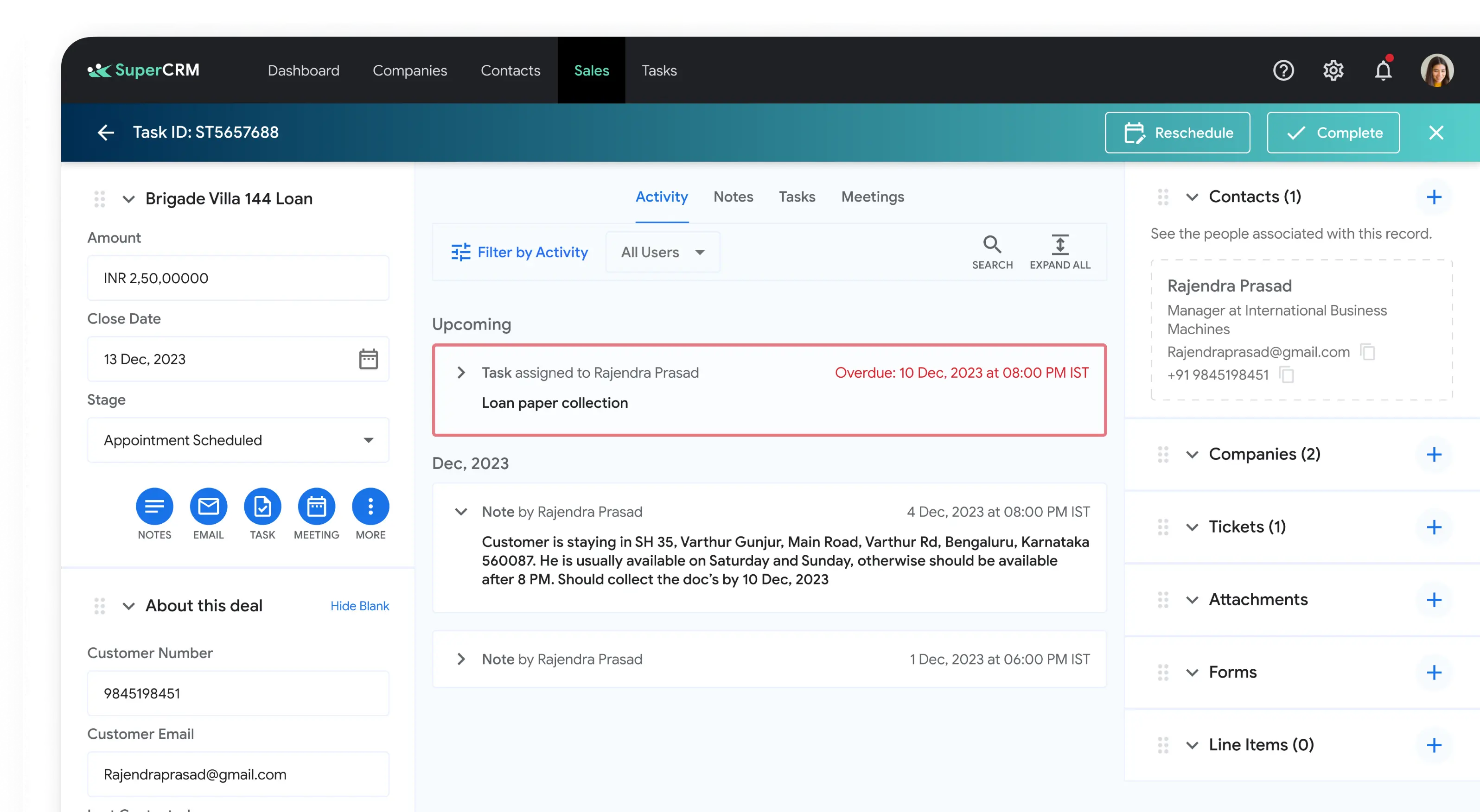Discover the Power of CRM Software
CRM software helps small businesses keep track of customer interactions, making it a central tool for successful sales. It organizes all customer data in one place, providing a clear view of interactions and ensuring easy retrieval and updates throughout the customer journey.

Understanding CRM
CRM stands for customer relationship management, focusing on how a business manages relationships with clients or prospects. It's a crucial tool for enhancing customer interactions, whether it's managing contacts, tracking leads, or analyzing sales performance.

Try out SuperCRM for free!
Want to discover SuperCRM for yourself? Create your free account now and explore SuperCRM's messaging platform.

What Does CRM Stand For?
CRM stands for Customer Relationship Management, representing how a business manages relationships with clients or prospects. While the accepted meaning is customer relationship management, some also interpret CRM as customer retention management, referring to either software or a business practice.
Types of CRM for Small Businesses
Consider industry-specific CRM tailored for your business type, or opt for all-in-one CRM solutions designed for small and mid-market companies. These solutions offer integrated features to manage customer relationships effectively.
Essential CRM Features for Small Businesses
Key features like contact and account management, opportunity tracking, lead management, and sales analytics dashboards can significantly benefit small businesses. These features help organize customer information, track sales opportunities, manage leads, and provide insights for better decision-making.
Benefits of CRM Software for Small Businesses
Implementing CRM software brings several advantages, including improved organization, increased revenue through better sales insights, and a shared understanding of account status. It's a tool that streamlines operations and enhances customer relationships, crucial for the success of small businesses.
Who Can Benefit from CRM Software?
If you're a small business owner, your sales, marketing, and customer service teams can benefit the most from CRM software. It helps sales teams make smarter decisions, allows marketing to inform campaigns based on CRM insights, and enables customer service teams to track interactions effectively.
Choosing and Buying CRM Software for Your Small Business
When selecting CRM software, focus on your business size and specific needs. Look for features like contact management, lead tracking, and analytics. Consider all-in-one solutions or industry-specific CRMs based on your business type.
Cost of CRM Software for Small Businesses
CRM software costs vary but typically range from $30 to $80 per user per month. It's essential to negotiate wisely, starting with minimal licenses and functionality. Also, factor in implementation and ongoing support fees for a comprehensive understanding of the costs.
Implementing CRM Software in Your Small Business
The implementation process involves a team, including a project manager, application analyst, applications developer, QA test engineer, and sales leadership. It typically takes a couple of months and involves stages like user training, data migration, testing, and a well-communicated go-live process.
Case Study - A Small Business Success
Imagine a small bakery implementing CRM software. The owner can easily manage customer contacts, track orders, and analyze sales trends. The system helps in personalized marketing campaigns and ensures a seamless experience for customers. Over time, the bakery sees increased revenue and better customer relationships, showcasing the value of CRM for small businesses.
Stay Ahead with CRM Trends
Stay updated on CRM trends, such as lead-to-account matching and routing, which enhances your account-based strategies. Additionally, consider the integration of artificial intelligence in CRM for automating manual tasks, making your sales processes more efficient.
In conclusion, CRM software is a game-changer for small businesses, offering a streamlined way to manage customer relationships, boost sales, and stay competitive in the market.